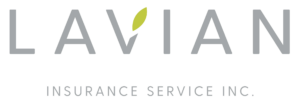
Income Protection Insurance, also known as Disability Insurance, is a type of insurance policy that provides financial benefits to policyholders who are unable to work due to illness or injury. It is designed to replace the full portion of the policyholder’s lost income by paying a tax-free monthly benefit while they are disabled and unable to perform their regular job duties.
What Is Disability Insurance?
Disability insurance protects your ability to earn a living. If an illness or injury prevents you from working, this coverage replaces a portion of your income—so you can continue paying your bills and maintaining your lifestyle while you recover.
What’s your most valuable financial asset—and are you truly protecting it? It’s not your house or car that you insure, and it’s probably not your investments or any other physical asset you own. Your most important financial asset is YOU—your ability to earn an income.
Think of it as income protection. Just like you insure your home or your car, disability insurance helps safeguard your most valuable asset: your paycheck.
Whether you’re self-employed, a healthcare professional, or planning for the future, disability insurance ensures you won’t have to deplete your savings or go into debt if the unexpected happens.
Why do you need Disability Insurance?
Disability insurance is an essential income protection, providing monthly benefit payments if an illness or injury prevents you from working. These benefits help cover your everyday living expenses—such as mortgage or rent, utilities, groceries, and loan payments—while keeping your long-term financial goals on track. In short, it helps you maintain your current lifestyle and financial stability, even when the unexpected happens.
Disability insurance isn’t just a safety net—it’s a vital part of your financial strategy. Consider these facts:
-
- Nearly 50% of all mortgage foreclosures are caused by a disability, while only 2% are due to death.
- 1 in 4 workers in the U.S. will experience an illness or injury that keeps them out of work for at least one year before age 65.
- 90% of disabilities are caused by illness, not accidents—proving that even those with safe lifestyles aren’t immune.
Protect your income. Protect your future.
How does Individual Disability Insurance work?
Individual disability insurance—often in the form of a Long-Term Disability (LTD) policy—is coverage you purchase for yourself, giving you the flexibility to tailor the policy to fit your specific needs and income. The benefit is the tax-free amount you receive each month if you’re unable to work due to illness or injury. It typically replaces 80% of your monthly income, helping you cover essential expenses like rent, mortgage, utilities, and groceries while you’re recovering. Benefit duration is based on the type of coverage purchased. For Short Term Disability this will typically not be more than a year; for Long Term Disability it could range from two years to retirement, or until you recover from your disability.
The most flexible and reliable source of income protection is an individual disability insurance policy that you purchase independently. One of the biggest advantages of a privately owned policy is its portability—you won’t have to worry about losing coverage if you change jobs.
This can make a significant difference in maintaining your financial stability if you’re unable to work due to illness or injury.
Who may benefit from these policies?
We specialize in helping doctors, dentists and other high-income professionals secure their financial future through customized individual disability insurance. Unlike most group policies, our plans offer “own occupation” protection — ensuring that if you’re unable to work in your specific dental or medical specialty due to disability, you’ll still receive full benefits, even if you choose to work in a different field.
While many professionals understand the importance of income protection, few truly grasp how much their income is worth over time. Consider these examples:
-
- A physician earning $300,000 annually who suffers a permanent disability at age 40 could lose up to $7.5 million in future earnings.
- A physician earning $500,000 annually who suffers a permanent disability at age 45 could lose up to $10 million in future earnings.
A typical group disability insurance policy helps protect your income by covering up to 60% of your salary if you’re unable to work due to a disabling injury or illness. Our disability insurance policies stand above typical group plans by offering own-occupation protection—ensuring that even if you’re able to work in another field, dental or medical specialty, you’ll still receive full benefit payments if you’re unable to perform the duties of your original specialty.
Without long-term disability insurance, the financial impact of an unexpected disability could be devastating. Protect your most valuable asset—your income.
Tailored Protection, Expert Guidance
These policies are most commonly purchased through a financial professional who understands the nuances of disability insurance.
Our expertise lies in matching the right disability insurance policy to your unique needs & budget. We work directly with leading underwriters to secure the most favorable offers on your behalf. Every solution we provide is thoughtfully designed to fit your individual circumstances and career path.
Let us deliver a personalized quote today—and take the first step in protecting your income.
Get a Quote
We understand that your ability to earn an income is the foundation of your financial future. That’s why we work with top-rated insurance carriers to find the best coverage and value, tailored to your unique situation.
Our specialty lies in serving high-income professionals, particularly physicians and dentists, by helping them secure own-occupation disability insurance—the gold standard in income protection.
Let us help you protect your most valuable asset—your future income.
Trusted Companies We Work With
- Gurdian
- Principal
- Ameritas
- The Standard
- Mass Mutual
- Mutual of Omaha
- Ohio National Financial Services
- Lloyds of London
- Petersen International
Shay AlavianIndependent Health Insurance Agent
- To speak with a licensed agent, call (949) 478-5707
(TTY 711 M-F, 9am-5pm)
- 0G15433
- 5850 Canoga Ave. Ste 400
Woodland Hills CA 91367
Need Assistance or a Quote?
Please contact our office during normal business hours or provide us with the details of your request below and we will get back to you within one business day.
Frequently Asked Questions About Disability Insurance
How much does disability insurance cost?
Disability insurance typically costs 1% to 4% of your annual income, but several personal and policy-specific factors influence the exact premium. There are few aspects that determine the cost of the disability insurance and those are based on a few factors such as age, health, home state, medical specialty, gender, monthly benefits and optional riders.
What Are the Differences Between Group and Individual Disability Insurance Contracts?
Group Insurance
- Can be canceled or changed at any time – The employer or insurer can modify the terms or cancel the policy.
- Not portable – If you leave your employer, you generally lose coverage.
- Restricted definitions of disability – Most group policies do not include the “own occupation” definition, meaning you may not be covered if you cannot work in your specific job, but could work in another.
- Taxable benefits – Disability benefits are usually taxed, as premiums are typically paid with pre-tax income.
Individual Insurance
- Cannot be canceled or changed – As long as you continue to pay your premiums, the policy cannot be altered or canceled by the insurer.
- Portable – Your coverage stays with you even if you change employers or move across the country.
- Own occupation disability benefits – Many individual policies provide own-occupation coverage up to age 65 or 67, ensuring you’re covered if you can’t perform your specific job duties.
- Non-taxable benefits – If premiums are paid with after-tax dollars, the benefits you receive are generally not taxable.
What Is Social Security Disability Insurance (SSDI)?
Social Security Disability Insurance (SSDI) is a government program that provides income if you become unable to work due to a qualifying disability. It’s part of your overall Social Security benefits—but it has significant limitations.
- Difficult to Qualify: SSDI has strict medical and work history requirements. In fact, most applicants are denied, even after multiple appeals.
- Lower Benefit Amounts: The monthly benefit is typically much less than what you’d receive from a private disability insurance policy.
- Lengthy Approval Process: Even if you qualify, getting approved can take several months or longer.
Because of these challenges, most experts agree: SSDI should not be your only source of income protection. A private disability insurance policy can provide broader coverage, higher benefits, and faster access to funds—offering far greater financial security.
What is Underwriting?
Underwriting is the process an insurance company uses to evaluate your application for coverage. It helps the insurer determine the level of risk, whether to approve your policy, and how much to charge for your premium.
As part of the underwriting process, the insurer may review:
- Medical History
This includes your past and current health conditions, physicians you’ve seen, and medications you’ve taken. - Financial Records
Documents like pay stubs or tax returns are used to verify your income and justify the benefit amount you’re applying for.
Underwriting helps ensure that your coverage is both appropriate and fairly priced based on your individual situation.
How Long Does Underwriting Take?
The underwriting process typically takes 3 to 6 weeks from the time your application is submitted. On average, you can expect it to take about one month.
Most of this time is spent gathering the necessary information, such as:
- Medical records from your healthcare providers
- Financial documents, like pay stubs or tax returns
This information allows the underwriter to make a well-informed decision about your application and determine the appropriate premium and benefit amount.
Being prompt in providing requested documents can help speed up the process.
What do I need to know about the medical exam?
Depending on the benefit amount you’re applying for, a brief medical exam may be required as part of the underwriting process.
- The exam is paid for by the insurance company and conducted by a third-party medical service, often at your home or office for your convenience.
- It may include a:
- Basic physical exam
- Blood work
- Urine analysis
- And in some cases, an EKG
The results are sent directly to the insurance underwriter and reviewed along with your application. You can also request a copy of the exam results for your own records.
This step helps ensure that your policy accurately reflects your health profile—and supports fair, appropriate coverage decisions.
What Is an 'Own-Occupation' Disability Insurance Policy?
An “own-occupation” disability insurance policy is a type of coverage that protects your ability to earn an income in your specific occupation or specialty. It is considered one of the most comprehensive forms of disability insurance.
Under this type of policy, you are considered disabled if an illness or injury prevents you from performing the material and substantial duties of your regular occupation—even if you are able to work in a different capacity or field.
This is especially valuable for highly trained professionals, such as physicians, surgeons, dentists, attorneys, and other specialists, whose skills and income are closely tied to their specific roles.
Are Disability Insurance Benefits Taxable Income?
If you pay your disability insurance premiums with after-tax income (net income), the monthly benefit will not be taxed. However, if you choose to deduct your premiums from your taxable income, the monthly benefit will be taxed during a period of disability. Similarly, if your employer pays the premium on your behalf, the monthly benefit will also be taxed.
Get Free Medicare Assistance
Friendly, licensed professionals are available to answer all of your questions. Call (949) 478-5707 or complete the form below and we’d be happy to reach out to you.
